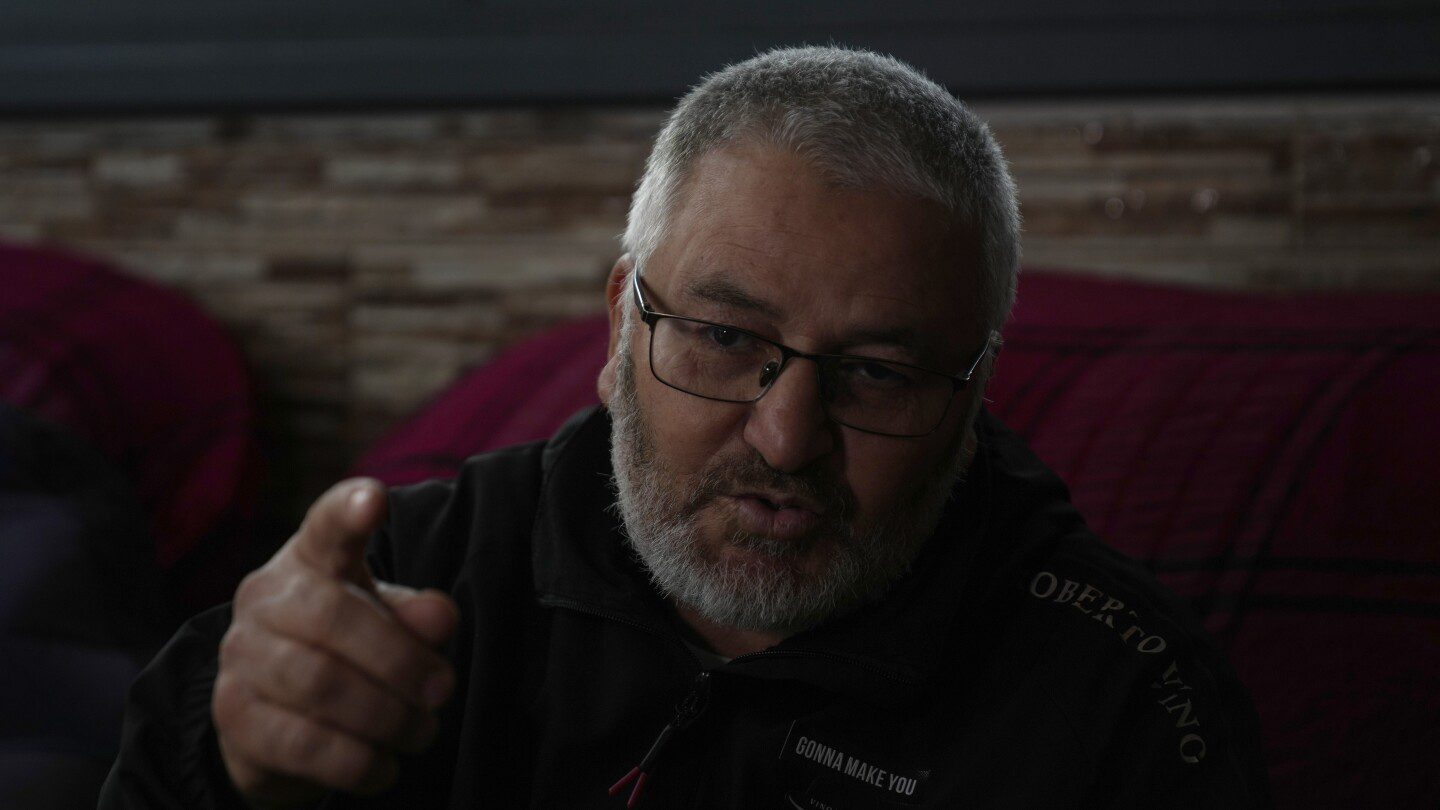
KAFR AL-LABAD, West Bank (AP) — Mohammed Shula recalls a frantic call in the depths of night from his daughter-in-law, who was eight months pregnant with her first child. The fear in her voice was palpable as she pleaded for help. “You have to save us,” she whispered, urgency and desperation evident.
Tragically, just moments later, Sondos Shalabi was shot and killed.
Sondos and her husband, 26-year-old Yazan Shula, had fled their home early Sunday in response to a significant Israeli security operation targeting the Nur Shams refugee camp, a densely populated area in Tulkarem, located in the northern region of the West Bank.
Israeli military vehicles had surrounded the camp days earlier as part of a broader offensive against Palestinian militants, a situation that has escalated since the recent ceasefire between Israel and Hamas in Gaza. Israeli Defense Minister Israel Katz announced intensified military operations aimed at preventing Iran, a close ally of Hamas, from establishing new fronts in the occupied territories.
The shooting of Shalabi, just 23 years old, is viewed by Palestinians as indicative of an alarming shift towards more aggressive Israeli military strategies in the West Bank. Following the incident, the Israeli army issued a statement indicating that they had referred the case to military police for a criminal investigation.
On the same day, another young Palestinian woman, aged 21, was also killed nearby by the Israeli army when an explosive device, previously planted, detonated as she neared her home.
According to the Israeli army, they were targeting a wanted militant believed to be in her residence and attempted to force entry. They claimed the woman did not comply with orders to leave the building, expressing regret for any unintended harm to civilians.
Since the onset of conflict following Hamas’ attack on October 7, 2023, it is reported that at least 905 Palestinians have lost their lives to Israeli forces in the West Bank and East Jerusalem, according to the Palestinian Health Ministry. This figure includes militants engaged in clashes with Israeli forces, as well as innocent bystanders, including a toddler, a 10-year-old boy, and a 73-year-old man.
Maher Kanan, part of an emergency response team from a nearby village, highlighted the change in military conduct: “The basic rules of engagement have shifted. The number of civilians impacted demonstrates a troubling parallel to actions in Gaza.”
Mohammed Shula, 58, mentioned that his son and daughter-in-law had been preparing to flee Nur Shams amid the fear of aerial assaults from Israeli drones and the encroaching dangers posed by armed conflict. They were anxious as their baby’s delivery date approached, particularly Yazan, who deeply worried for Sondos’ safety.
Yazan Shula, who had recently lost his construction job due to restrictions on Palestinian workers entering Israel, was eagerly anticipating fatherhood, as shared by his father. Sondos, described as gentle and cherished, had moved into their home 18 months prior after marrying Yazan. “This baby was the center of their lives,” Mohammed Shula expressed.
On that early Sunday morning, the couple packed essentials to escape to Sondos’ parents’ home a few miles away in Tulkarem, aiming for safety and proximity to a hospital for the impending childbirth. Yazan’s younger brother, Bilal, 19, decided to join them.
However, shortly after they set off, gunfire erupted. Mohammed Shula’s phone lit up. His daughter-in-law gasped for breath, horrified as she revealed that an Israeli sniper had shot her husband, causing a severe wound. Though she was unharmed, panic set in as she felt helpless.
He instructed her calmly to seek shelter and knock on doors for assistance. On speakerphone, he heard her desperate knocks and screams, but no one answered.
She reported seeing soldiers drawing near, and then the call abruptly ended. Fearing for their safety, he reached out to the Palestinian Red Crescent rescue service.
“We couldn’t risk going outside for fear of being shot,” said 65-year-old neighbor Suleiman Zuheiri, who was aiding medics trying to access the injured. “Despite our efforts, the medics were repeatedly held back while she bled.”
Bilal Shula was not injured but was apprehended at the scene and detained for several hours.
The Red Crescent noted that the International Committee of the Red Cross had received permission from the Israeli military to allow medical personnel into the camp. However, the paramedics faced multiple detentions on their way to the car, delaying their response.
When confronted about the blocked ambulances, the Israeli military reiterated that they were investigating the circumstances surrounding Shalabi’s death.
It wasn’t until after 8 a.m. that paramedics finally reached the couple, though they were detained a third time while hastily transporting Yazan to a hospital. He was found unconscious and remains on life support, while Sondos was pronounced dead along with her unborn child.
Mohammed Shula is haunted by the thought that soldiers saw Sondos bleeding out on the ground without intervening while they apprehended his other son. “Why did they shoot? They were innocent. They could have asked questions, but instead, they just shot,” he lamented, his fingers tracing the beads of his prayer necklace.
Hours later, Israeli forces stormed the camp, with explosions reverberating through the narrow alleys, armored bulldozers tearing up roads, cutting water lines, and leaving residents without electricity and running water.
Before he could fully grasp the chaos, Israeli troops arrived at Mohammed Shula’s home, forcing him and several family members, including his daughter and young grandchildren, to vacate. The military denied carrying out forced evacuations, claiming they were merely facilitating voluntary exits for those looking to leave a combat zone. However, numerous Palestinian civilians in Nur Shams recounted similar experiences of being compelled to evacuate.
Pointing to a single bag of baby diapers in his friend’s living room, Mohammed Shula reflected on the chaotic situation. “That’s all I managed to grab. No photos, no clothes — just this,” he said.









